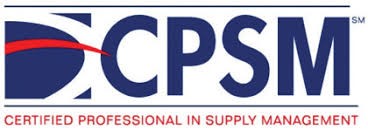Top 10 Misconceptions About CMMC Certification
Luis G. Batista C.P.M., CPSM

Working with Defense Industrial Base (DIB) contractors, I’ve noticed that confusion around CMMC certification is one of the biggest roadblocks to compliance. Too many companies delay preparation or misallocate resources because they’re working off bad assumptions. Let’s clear the air by tackling the ten most common misconceptions I hear.
1. “CMMC is optional.”
It isn’t. If your contracts involve Federal Contract Information (FCI) or Controlled Unclassified Information (CUI), CMMC is required. Non-compliance means you risk losing eligibility for DoD contracts.
2. “We’ll wait until our first audit to get serious.”
A dangerous gamble. CMMC certification is pass/fail—if you’re not prepared, you won’t get certified. Without certification, you can’t bid. Preparation must begin well before the audit window.
3. “CMMC is just an IT problem.”
Cybersecurity goes beyond firewalls and software. Policies, training, vendor management, and incident response are just as important. CMMC is an organization-wide responsibility, not just the IT department’s job.
4. “One-size-fits-all.”
Every contractor’s scope is different. Your certification level (L1 or L2 for most DIB contractors) depends on whether you handle FCI or CUI. Assuming you need the same controls as another company may lead to wasted resources—or compliance gaps.
5. “We can outsource compliance completely.”
Third-party providers can help, but accountability remains with you. Even if an MSP runs your systems, the prime contractor is responsible for ensuring compliance. Auditors will be looking at your practices and policies, not just your vendor’s.
6. “Policies = compliance.”
Having written policies is not enough. You must demonstrate that policies are implemented, tested, and followed. Auditors will expect evidence that staff are trained and procedures are in action.
7. “We only need to prepare once.”
CMMC compliance is ongoing. Your System Security Plan (SSP), POA&Ms, and evidence must be kept up-to-date. Treat compliance as a living program, not a one-time project.
8. “Self-attestation is good enough.”
Not for CMMC Level 2 when CUI is involved. These certifications require an independent C3PAO assessment. While self-assessments may apply at Level 1, most contractors dealing with sensitive data will need third-party certification.
9. “Auditors will help us fix issues.”
C3PAOs assess, they don’t consult. Their job is to validate whether you meet the requirements, not to coach you through remediation. You must resolve gaps beforehand.
10. “CMMC is only about winning contracts.”
Yes, compliance is a contract requirement, but the larger purpose is supply chain security. CMMC strengthens your overall cyber resilience—helping you protect your business, your data, and the DoD’s mission.
Final Thoughts
CMMC can feel overwhelming, but clarity helps. By dispelling these misconceptions, you can approach compliance strategically—avoiding wasted effort and costly delays. My advice: start early, focus on evidence-driven implementation, and use tools that simplify documentation and gap management.
Certification is not just a box to check. Done right, it’s a chance to strengthen your cybersecurity posture and build trust with both the DoD and your customers.
CyberComply
+1 (305) 306 - 1800
©2023 Armada Cyber Defense LLC (ACD), DBA CyberComply, ALL RIGHTS RESERVED. ACD is a for profit entity, not associated with the Small Business Development Center (SBDC), Apex Accelerators, Florida International University (FIU), the Small Business Administration (SBA), the Department of Defense, (DOD), or any of their stakeholders
Simplifying CMMC certification for defense contractors through automation and expert guidance.



